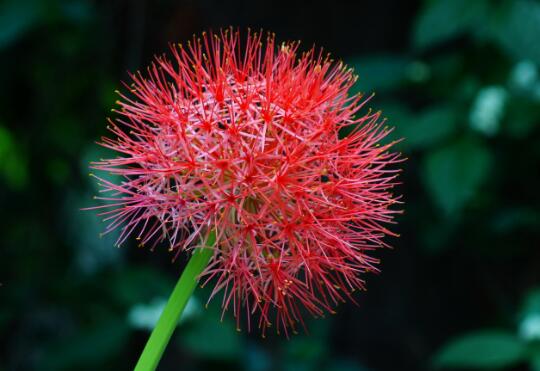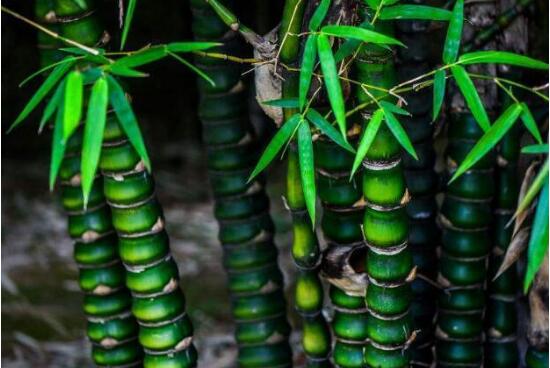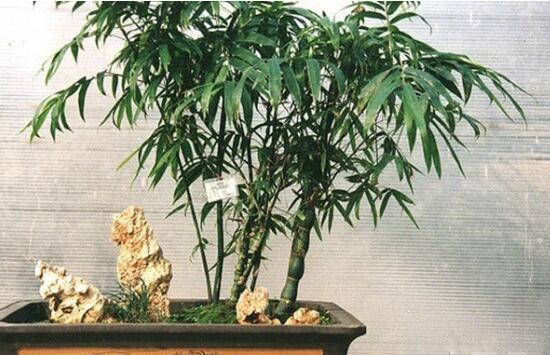How to cultivate tennis flowers in pots, how to cultivate tennis flowers and matters needing attention / temperature control
Tennis flower is a kind of flower plant native to Africa, which was introduced to China. Nowadays, it can be seen in many parts of our country, but it is not easy to raise it well. There are many things to pay attention to. How to grow tennis flowers in pots? What are the breeding methods and matters needing attention of tennis flowers? Next, the editor will take you to learn about it.
First, how to grow tennis flowers in pots and understand their habits

If you want to know how to grow a tennis pot, we must first understand its growth habits. This plant likes to grow in a warm and humid semi-shaded environment and is not resistant to strong light, so we should pay attention to shade when the light is strong. In addition, the daily water and fertilizer management is also a point that we need to pay attention to. The details are described below, let's take a look.
II. Culture methods and matters needing attention of tennis flowers
1. Sandy loam
Before we cultivate tennis flowers, we must first choose soil, just like making a house to lay a foundation, which is a step to lay a good foundation, so we must choose a soil suitable for its growth. This kind of plant likes loose and fertile sandy loam. This kind of soil has good drainage and air permeability, which can make the plant absorb nutrients better.
two。 Temperature, 10: 20 ℃
When we breed tennis flowers, the ambient temperature is also what we need to pay attention to, because only if we let it grow at a suitable temperature, it can grow better. The suitable growth temperature of tennis flower is between 10 and 20 ℃, and the optimum temperature of overwintering dormancy is 8: 10 ℃.
3. Fertilize, once every two weeks
Fertilizer is one of the main nutrients in the growth process of tennis flower, especially after entering its growth period, its demand for fertilizer is very high, basically every two weeks we need to fertilize it, so that it can thrive. However, before fertilizing, we should pay attention to the fact that the fertilizer should not be too thick and thin cake fertilizer should be applied, otherwise it is easy to burn the plant.
4. Moisture, dry and wet.
Watering is an indispensable link in the growth process of tennis flowers, we should maintain the principle of "no dry, no watering, watering thoroughly" when watering it, and try not to water it thoroughly, because this kind of plant is not resistant to waterlogging. If there is stagnant water, it is easy to cause its roots to rot. Generally, we can water more in summer, but not in winter dormancy.
5. Light, avoid strong light
Tennis flower is a plant that likes shade and is not tolerant to strong light, so we should avoid direct sunlight when we breed it. When the light is more suitable in spring and autumn, we can breed it in the outdoor sunlight scattering place. After entering the summer, because the light is relatively strong, we should move it to the indoor semi-shade to cultivate the plant, so as not to burn the plant by strong light.
6. Timely prevention and control of diseases and insect pests
In the process of cultivating tennis flowers, if we are not careful enough, it is very easy to let diseases and insect pests enter while they are empty. This kind of problem is very harmful to plants, so we must deal with it in time when we find it. For specific treatment methods, you can refer to the article on pest control of tennis flowers, in which there is detailed teaching.
Culture methods and matters needing attention of tennis flowers
Cultivation methods of Tennis Flower soil
Potted tennis flowers can choose loose, fertile and well-drained soil. The cultivated soil can be added with some fine sand to increase the air permeability. At the bottom of the flowerpot, a layer of coarse sand or broken stone should be added to make the drainage layer.
Light and temperature
Tennis flowers like a semi-shady growing environment and are afraid of direct sunlight. Tennis flowers can be kept in a semi-shade in spring and autumn, and when the summer sun is strong, tennis flowers need to be moved to a cool ventilated place to protect them from sunburn leaves.
The suitable temperature for tennis flower growth is between 16 ℃ and 26 ℃, and between 10 ℃ and 12 ℃ at night. The overwintering temperature in winter should not be lower than 5 ℃, otherwise the plants of tennis flowers will be frostbitten. During the tennis flower blooming, the tennis flower can be maintained in a place with lower temperature to prolong the flowering period.
Watering and fertilizing
Tennis flowers in peacetime, we should pay attention to keep the basin soil moist, watering can not be too much, otherwise it will cause stagnant water in the basin leading to root rot. In autumn, when the temperature drops gradually, the leaves of tennis flowers begin to turn yellow, enter the dormant period, reduce watering, and finally stop watering. The cultivation of tennis flowers should be fertilized reasonably, and a certain amount of cake fertilizer should be applied as base fertilizer when planting, and thin fertilizer and water can be applied every half a month in the growing season.
Reproduction method
Tennis flowers are propagated by dividing balls and sowing.
Matters needing attention in Tennis Flower Culture Diseases and insect pests
Tennis flowers in the growth process, if the basin soil is too wet will cause rot, but also the harm of nematodes and slugs. Pay attention to daily maintenance and kill insects in time.
Change the basin
As the plant grows, tennis flowers need to change pots, which can be combined with pots to split every spring.
Culture methods and matters needing attention of tennis flowers
Chinese scientific name: tennis flower
Latin name: Haemanthus multiflorus
Chinese scientific name tennis flower
Also known as tennis Lycoris
The plant kingdom.
Phylum angiosperm
Monocotyledon class
Amaryllidaceae
Belong to the genus Tennis
Grow tennis flowers
The distribution area is originally from tropical Africa, and there is also a wild distribution in Yunnan, China.
The tennis flower of Amaryllidaceae is a perennial herb. Tropical origin, sexual preference for warm, humid and semi-shady environment, afraid of heat, fear of cold. Introduced and cultivated in China for ornamental use.
1. Morphological characteristics.
Perennial herbs. Bulb globose, 4-7 cm in diam. Leaves 3-4, oblong, 15-30 cm long, 6-8 longitudinal veins on both sides of the main vein, horizontal veinlets arranged densely and oblique; petiole short, sheathlike. Flowering stems erect, solid, slightly flattened, 30-90 cm tall, first leaves drawn, light green or erythematous; umbels with many flowers, densely arranged, 7-15 cm in diam.; flowers red; perianth lobes linear, ca. 2 times as long as perianth tube; filaments red, protruding beyond perianth, anthers yellow. Bright red berries. Flowering in summer. It is native to tropical Africa.
2. Growth
Characterized by perennial herbs, bulbs are large and oblate. The leaves are broadly lanceolate and the base of the petiole declines in the shape of a sheath. The leaves are extracted from the short stem above the bulb and 3-6 are collected. Flowering stems erect, first leaves drawn; umbels terminal; flowers small, up to 30mm 100, blood red. The berries are spherical. The florescence is from June to July.
Habits like warm, moist and semi-overcast environment. Like sandy loam with good drainage. More drought-tolerant, not cold-resistant, Nanjing, Shanghai, Hangzhou and other places can not overwinter in the open field, the winter bulb into the dormant period, must be cultivated indoors. The suitable temperature during the growing period is 20-30 ℃, and the overwintering temperature should be kept above 5 ℃. The soil should be loose, fertile and well drained.
Tennis flowers are native to tropical Africa and are also wild in Yunnan, China. Like warm, moist and semi-overcast environment. Like sandy loam with good drainage. It is not hardy and must be cultivated indoors in the middle and lower reaches of the Yangtze River, and the bulb enters the dormant period in winter.
3. Main points of cultivation.
It is basically introduced that it is planted in spring every year, fertilized once every ten days during the germination and leaf expansion period, and maintained in the semi-shady place when the summer light is too strong. Put a cool place in the summer flowering season, which can prolong the flowering period. In autumn, when the film begins to wither and yellow, reduce watering, the bulb enters the dormant period, should stop watering, keep the soil dry and dig out the bulb for storage indoors.
- Prev

How to raise the bonsai of Luohan bamboo, the breeding methods and matters needing attention / light should be sufficient.
Luo Hanzhu, the flower friends who have seen it should be impressed, just like its name, its stalk is very short, it looks like Luohan's belly from afar, it is very strange and beautiful. In life, many people want to raise Luohan bamboo, then how to raise Luohan bamboo? The following are the culture methods and matters needing attention of Luohan bamboo carefully arranged by the editor.
- Next

How to make and maintain the bonsai of Buddha belly bamboo, 5 plants are planted in one pot / reflect the natural charm
Buddha belly bamboo, a kind of peculiar plant, is different from ordinary bamboo, its bamboo knot is thin, the internodes are short and inflated, like the belly of Maitreya Buddha, but also like a folded Luohan, so it is also called Luohan bamboo. In life, Buddha belly bamboo is often made into bonsai and kept indoors, so how to make and maintain bonsai?
Related
- Fuxing push coffee new agricultural production and marketing class: lack of small-scale processing plants
- Jujube rice field leisure farm deep ploughing Yilan for five years to create a space for organic food and play
- Nongyu Farm-A trial of organic papaya for brave women with advanced technology
- Four points for attention in the prevention and control of diseases and insect pests of edible fungi
- How to add nutrient solution to Edible Fungi
- Is there any good way to control edible fungus mites?
- Open Inoculation Technology of Edible Fungi
- Is there any clever way to use fertilizer for edible fungus in winter?
- What agents are used to kill the pathogens of edible fungi in the mushroom shed?
- Rapid drying of Edible Fungi

